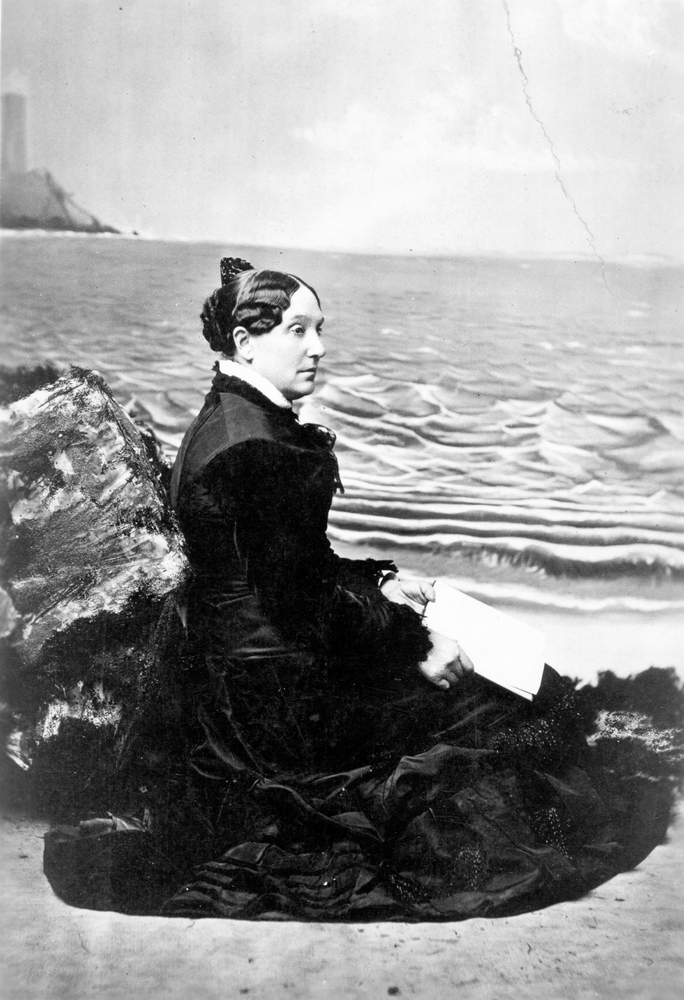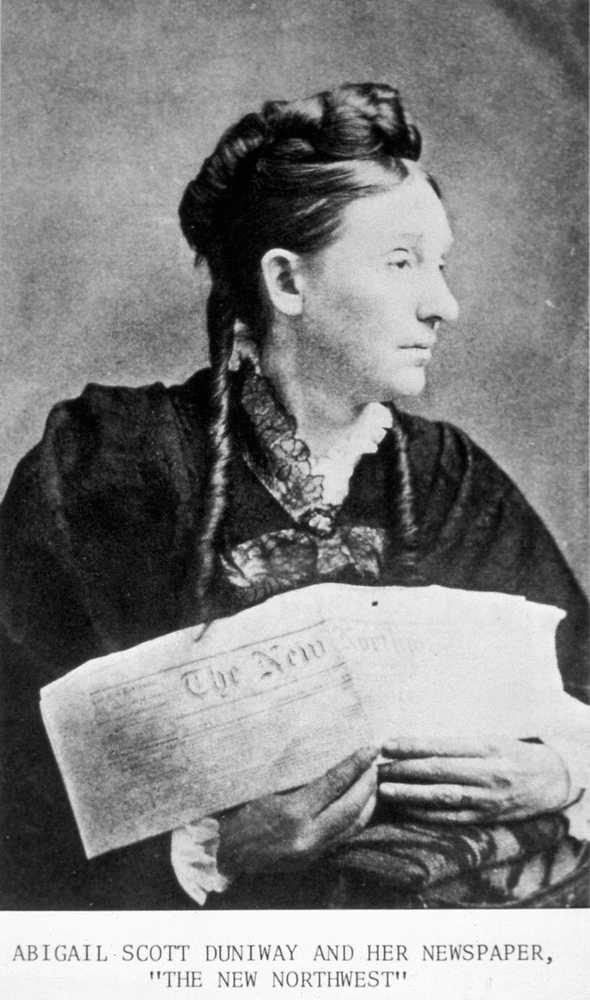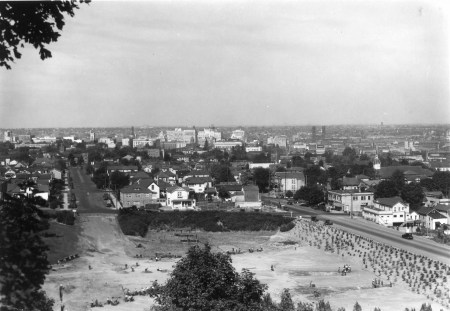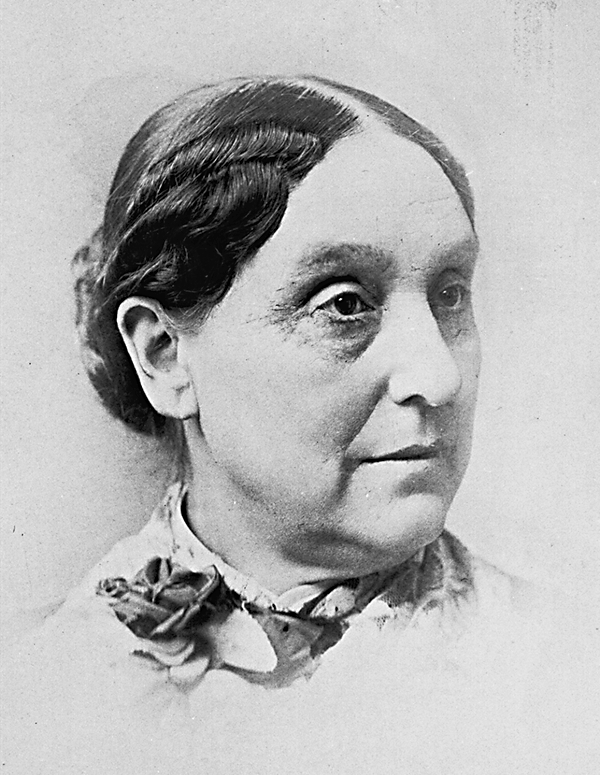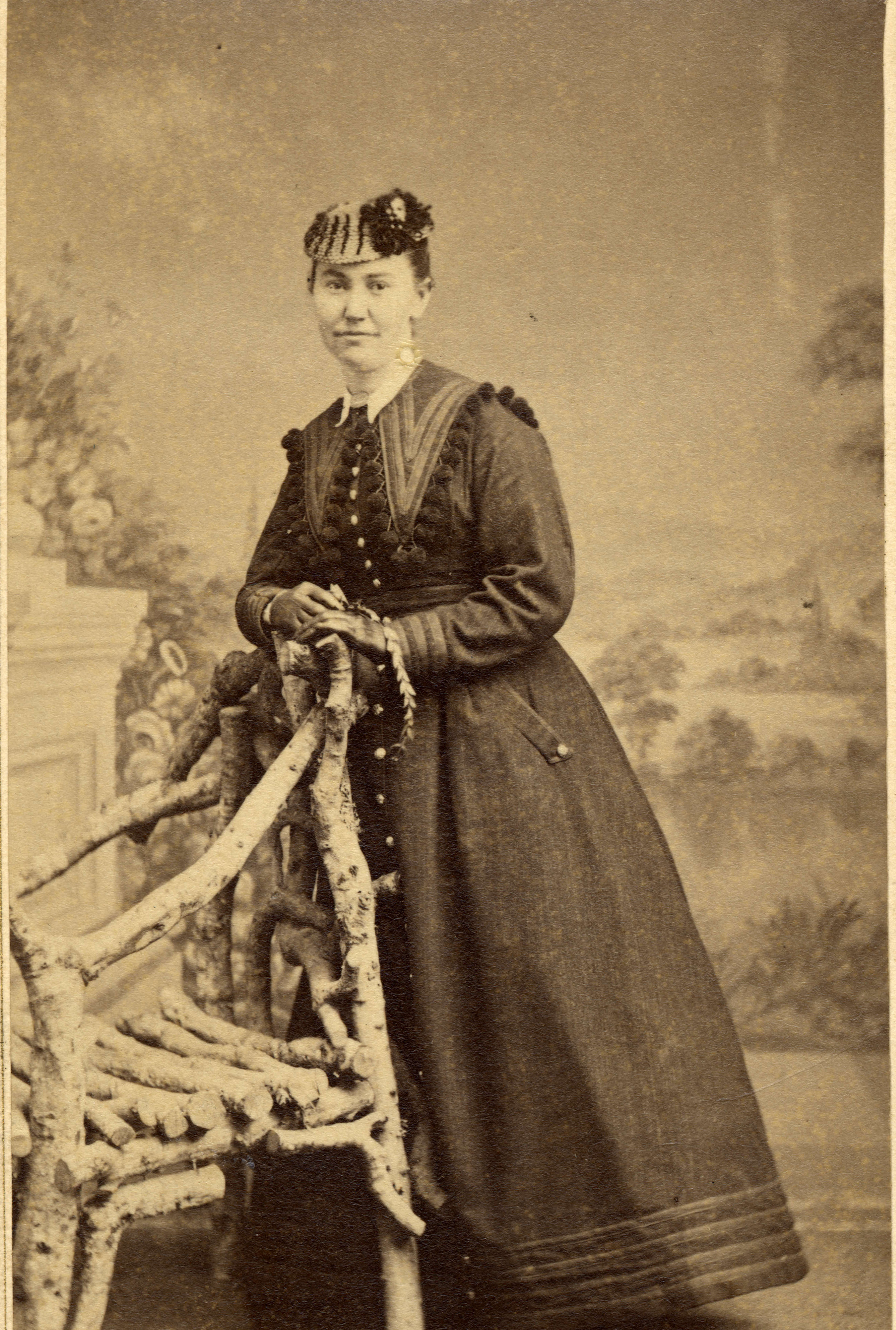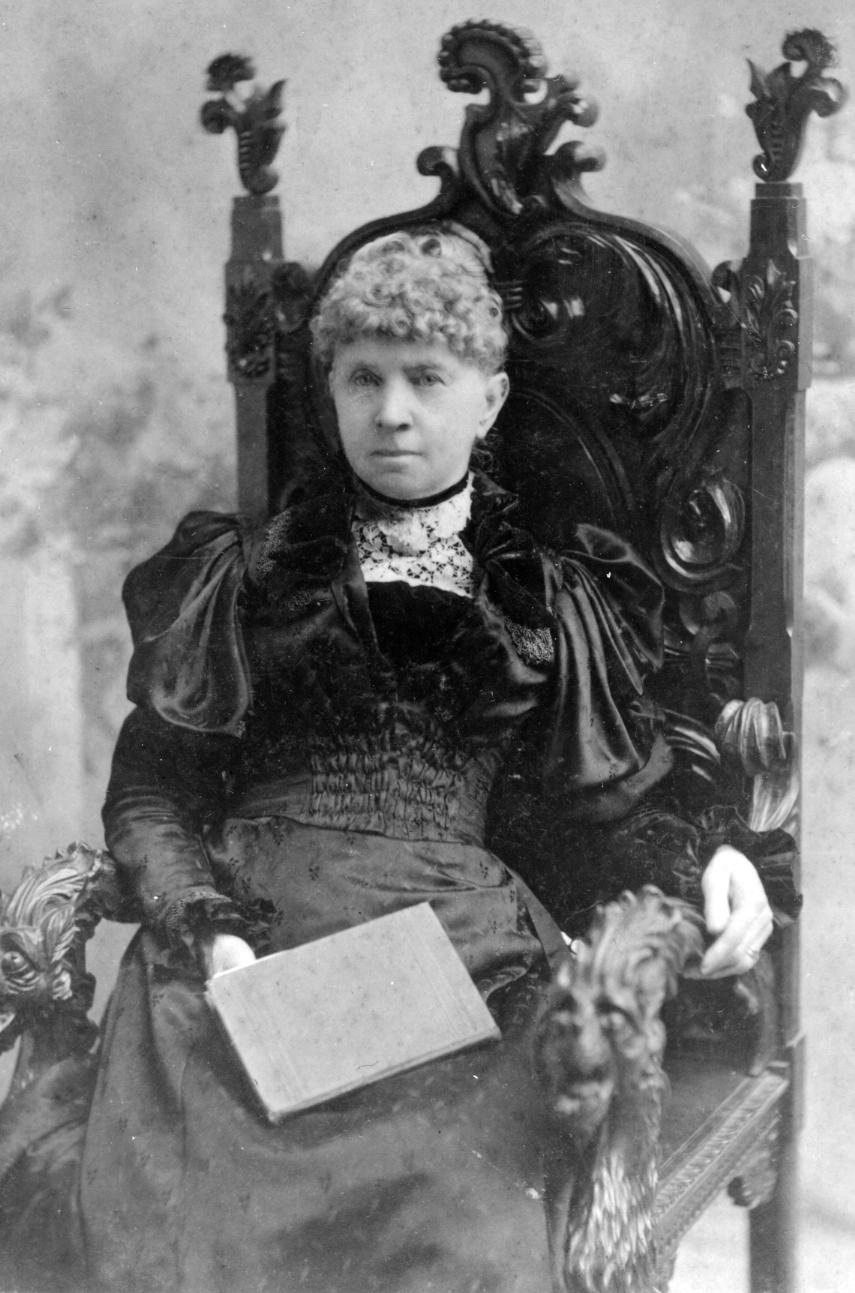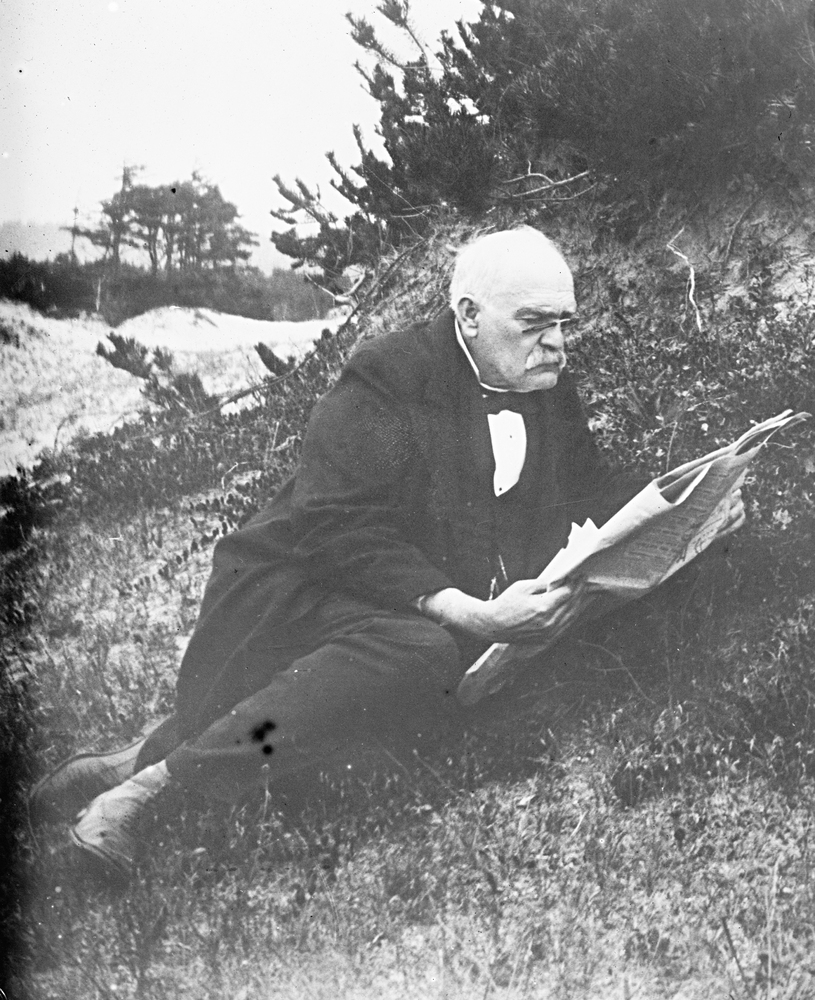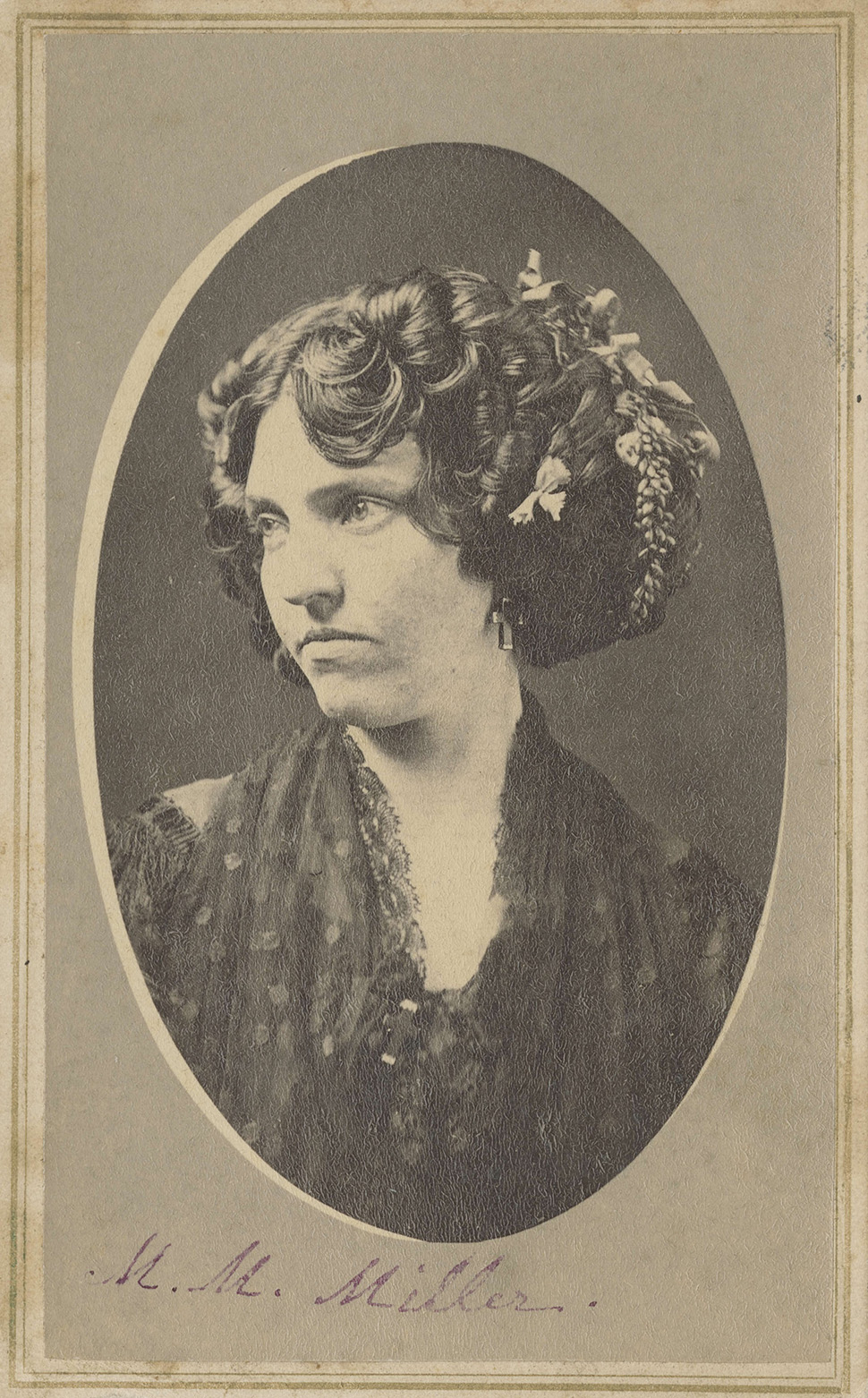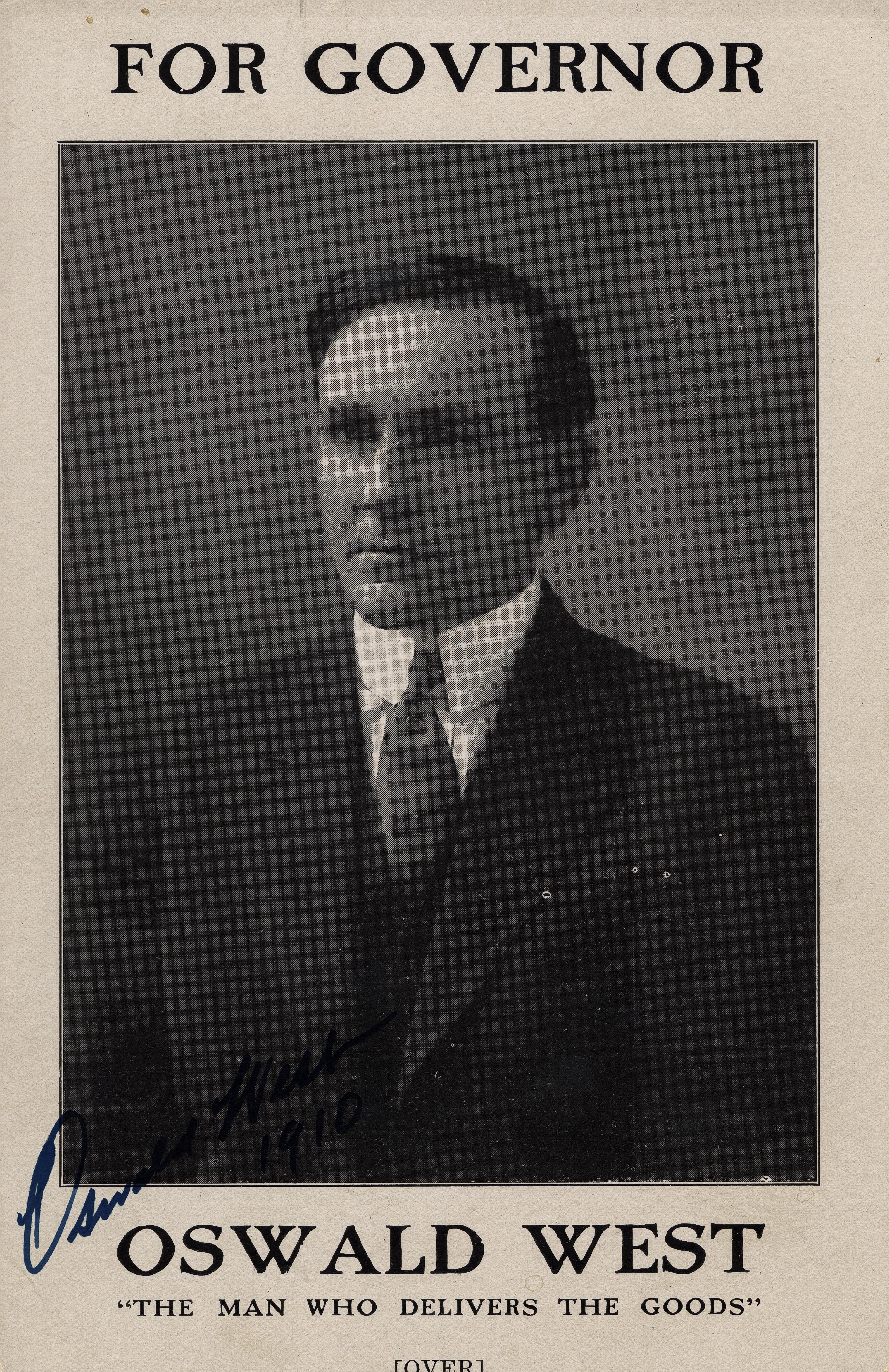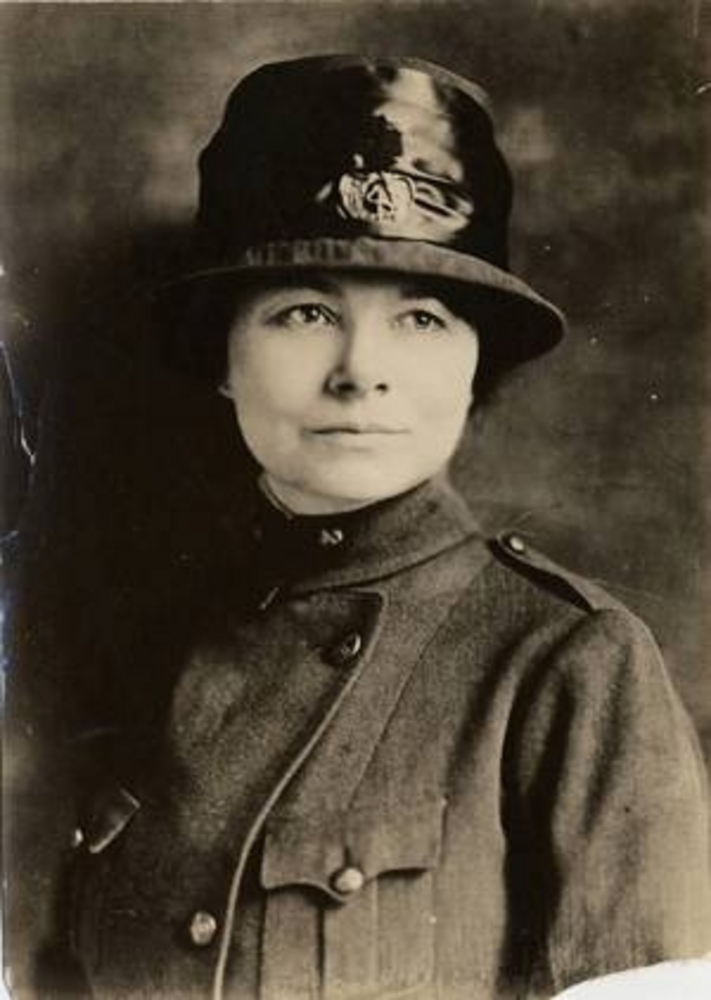Outspoken and often controversial, Abigail Scott Duniway is remembered as Oregon's Mother of Equal Suffrage and "the pioneer Woman Suffragist of the great Northwest." As lecturer, organizer, writer, and editor, Duniway devoted over forty years to the cause of women's rights.
For the election of 1872, Duniway joined other Republicans, including George Putnam Riley, Portland’s famed Black orator, in campaigning for the Ulysses S. Grant-Henry Wilson presidential ticket. On election day, she led Mary Laurinda Jane Smith Beatty, a Black woman, and Mary Ann King Lambert and Maria P. Hendee, two white women, to the polls, where all attempted to vote. Although their votes were not counted, their effort contributed to the creation of the Oregon State Woman Suffrage Association in 1873.
In Oregon, which defeated woman suffrage more times than any other state, Duniway witnessed five losses—in 1884, 1900, 1906, 1908, and 1910—before Oregon women gained the ballot in 1912. In Idaho Territory, she celebrated victory for woman suffrage in 1896, but her early successes were overturned in Washington Territory. The State of Washington gave women the vote in 1910.
Encouraged by her mentor, Susan B. Anthony, who toured the Pacific Northwest in the fall of 1871, Duniway attended national suffrage conventions and became one of five National Woman Suffrage Association vice-presidents-at-large. In 1890, she helped negotiate the merger of the NWSA and the American Woman Suffrage Association, which became the National American Woman Suffrage Association.
Less remembered, perhaps, is Duniway's extensive written legacy, including her weekly human-rights newspaper, The New Northwest, which she edited and published in Portland for sixteen years (1871-1887); The Coming Century, her "Journal of Progress and Reform" (1891-1892); and The Pacific Empire, a Portland weekly she edited for three years (1895-1897). She also wrote an epic poem, David and Anna Matson (1876); an autobiography, Path Breaking (1914); and twenty-two novels, including Captain Gray's Company (1859), the first novel commercially published in Oregon and later revised as From the West to the West (1905).
Duniway's novels addressed women's rights, and most were serialized in The New Northwest and The Pacific Empire. Dedicated to the improvement of "woman's condition" and personally aware of the hardships women faced, Duniway opened the pages of The New Northwest to other Pacific Northwest women writers such as Frances Fuller Victor, Minnie Myrtle Miller, and Bethenia Owens-Adair.
Abigail Scott was born October 22, 1834, to John Tucker and Ann Roelofson Scott, in Tazewell County, Illinois, the third of twelve children. In 1852, the Scotts traveled to Oregon Territory with their nine surviving children, and seventeen-year-old Abigail was assigned the task of keeping a daily journal.
During her first year in Oregon, while teaching in Eola, Abigail met Benjamin C. Duniway. They were married in August 1853 and settled on Ben's donation claim in Clackamas County. They later moved to Yamhill County, but then lost both farms—one to fire and the other to flood and collection on promissory notes.
After Ben suffered permanent injury in a runaway-team accident in 1862, he could do only light work. At Lafayette and then Albany, Abigail became the primary breadwinner for the family, taking in boarders, teaching school, and running a millinery shop. In 1871, the Duniways moved to Portland with their five sons and daughter. The New Northwest became their family enterprise, with Ben assisting in business matters and older sons helping with printing.
"Writing always was our forte," Abigail Duniway announced in her first issue of The New Northwest. "If we had been a man," she added, "we'd have had an editor's position and handsome salary at twenty-one" At age thirty-six, she may have been thinking of her younger brother, Harvey Scott, then junior editor and later chief editor and part owner of the Oregonian.
Fully committed to her signature line, "Yours for Liberty," and guided by The New Northwest motto of "Free Speech, Free Press, Free People," Abigail Scott Duniway exposed and combated what she identified as social injustice. From the speaking platform and in her writings, she discussed questions as diverse as the legal status of women, the rights of Blacks, the treatment of the Chinese, policies related to American Indians, and the limits of Temperance and Prohibition.
Unlike her brother Harvey Scott, who graduated from Pacific University, Abigail Scott Duniway was mainly self-taught and had less than a year of formal schooling in rural Illinois. Still, she was determined to make The New Northwest a voice for human rights, particularly woman suffrage. To her great disappointment, beginning with the campaign of 1884, Harvey's increasingly conservative position helped defeat equal suffrage in Oregon. The Oregonian did not actively support woman suffrage until the victory year of 1912, two years after Harvey's death.
Duniway was honored when Governor Oswald West asked her to write the Oregon Woman Suffrage Proclamation in 1912, but she did not live to see the Nineteenth Amendment grant suffrage to all women. On October 11, 1915, a few days before her eighty-first birthday, she died in a Portland hospital.
Abigail Scott Duniway's final Portland residence was at the Fordham Apartments, 742 SW Vista Ave. (formerly 170 Vista Ave.).
-
Abigail Scott Duniway.
Oregon Historical Society Research Library ba018089
-
Abigail Scott Duniway.
Oregon Historical Society Research Library ba017990
-
![Abigail Scott Duniway (seated) signing first Equal Suffrage Proclamation, Nov. 1912, with Governor Oswald West (r) and Dr. Viola M. Coe (l).]()
Duniway, Abigail Scott, with West, Oswald.
Abigail Scott Duniway (seated) signing first Equal Suffrage Proclamation, Nov. 1912, with Governor Oswald West (r) and Dr. Viola M. Coe (l). Women of Protest: Records of the National Woman's Party, Manuscript Div., Libr. of Congress, Group I, Container I:150, Folder: Duniway, Abigail Scott -
![Duniway Park, 1934]()
Duniway Park, 1934.
Duniway Park, 1934 Courtesy City of Portland Archives
-
Duniway, Abigail Scott.
Abigail Scott Duniway. Oreg. Hist. Soc. Research Libr.
Related Entries
-
![Bethenia Owens-Adair (1840-1926)]()
Bethenia Owens-Adair (1840-1926)
Bethenia Owens-Adair overcame seemingly insurmountable obstacles to bec…
-
![Frances Fuller Victor (1826–1902)]()
Frances Fuller Victor (1826–1902)
In 1869, the Overland Monthly and Out West Magazine featured "Manifest …
-
![Harvey Scott (1838–1910)]()
Harvey Scott (1838–1910)
Harvey Whitefield Scott was the dominant editorial voice in the Pacific…
-
![Mary Laurinda Jane Smith Beatty (1834–1899)]()
Mary Laurinda Jane Smith Beatty (1834–1899)
Mary Beatty, one of the first Black women west of the Mississippi to ad…
-
![Minnie Myrtle Miller (Theresa Dyer) (1845-1882)]()
Minnie Myrtle Miller (Theresa Dyer) (1845-1882)
Minnie Myrtle Miller, the "Poetess of the Coquille," was born Theresa D…
-
![Oswald D. West (1873-1960)]()
Oswald D. West (1873-1960)
Oswald D. West served as Oregon's fourteenth governor, between 1911 and…
-
Woman Suffrage in Oregon
The campaign to achieve voting rights (also called suffrage or the fran…
Related Historical Records
Map This on the Oregon History WayFinder
The Oregon History Wayfinder is an interactive map that identifies significant places, people, and events in Oregon history.
Further Reading
Duniway, Abigail Scott. Path Breaking: An Autobiographical History of the Equal Suffrage Movement in Pacific Coast States. Second Edition. Portland, Ore.: James, Kerns & Abbott, 1914.
Duniway, Abigail Scott. “We Did as We Agreed.” The New Northwest, November 8, 1872.
Kessler, Lauren. "A Siege of the Citadels: Search for a Public Forum for the Ideas of Oregon Woman Suffrage." Oregon Historical Quarterly 84 (Summer 1983).
Moynihan, Ruth Barnes. Rebel for Rights, Abigail Scott Duniway. New Haven: Yale University Press, 1983.
Stanton, Elizabeth Cady, Susan B. Anthony and Matilda Joslyn Gage, eds. Chapter 54, “The Pacific Northwest.” In History of Woman Suffrage, Vol. lll. Rochester, NY: Mann & Co., 1886.
Ward, Jean M., and Elaine A. Maveety. Yours for Liberty: Selections from Abigail Scott Duniway's Suffrage Newspaper. Corvallis: Oregon State University Press, 2000.
“The Votes of the Ladies.” Daily Oregonian, November 6, 1872.

